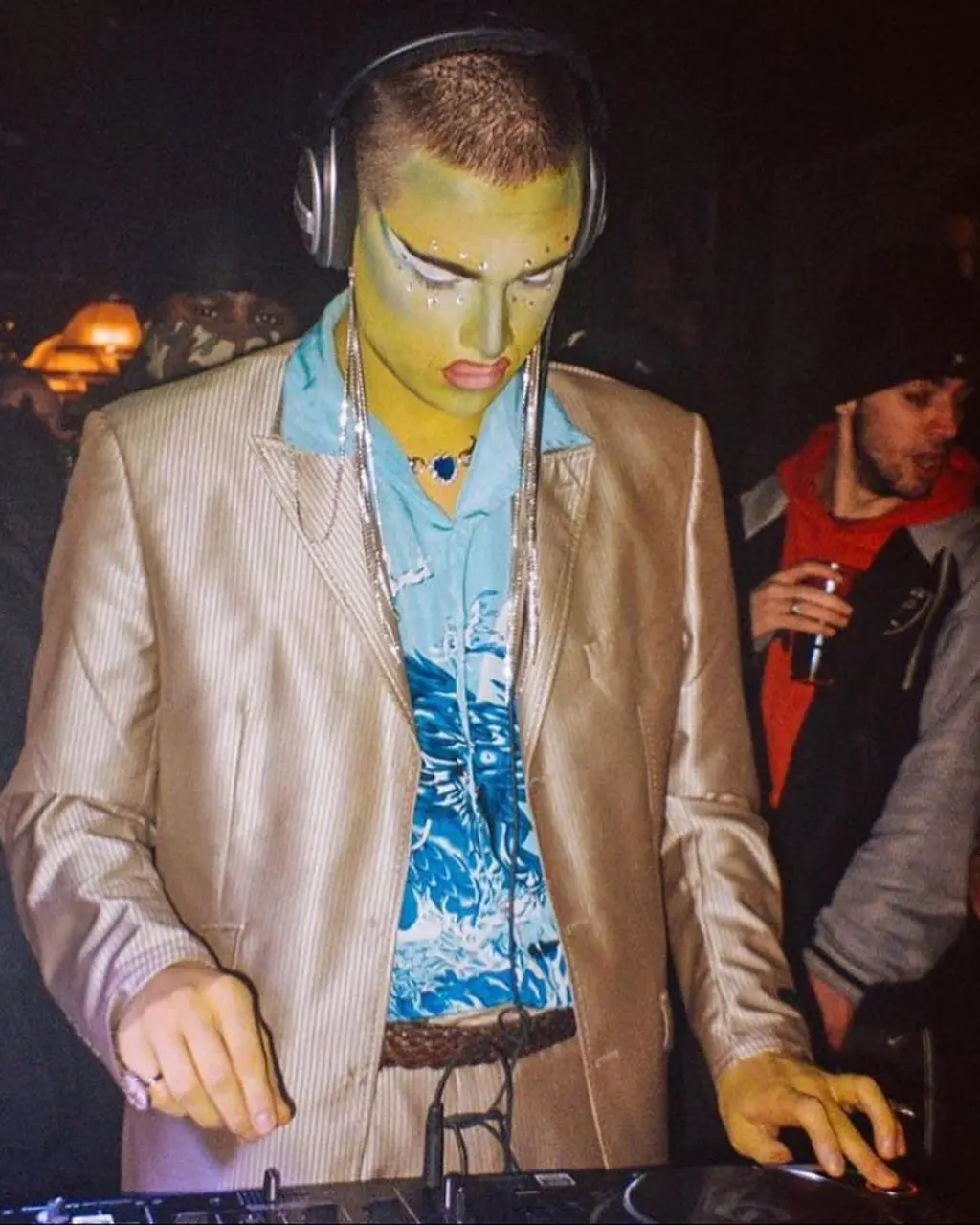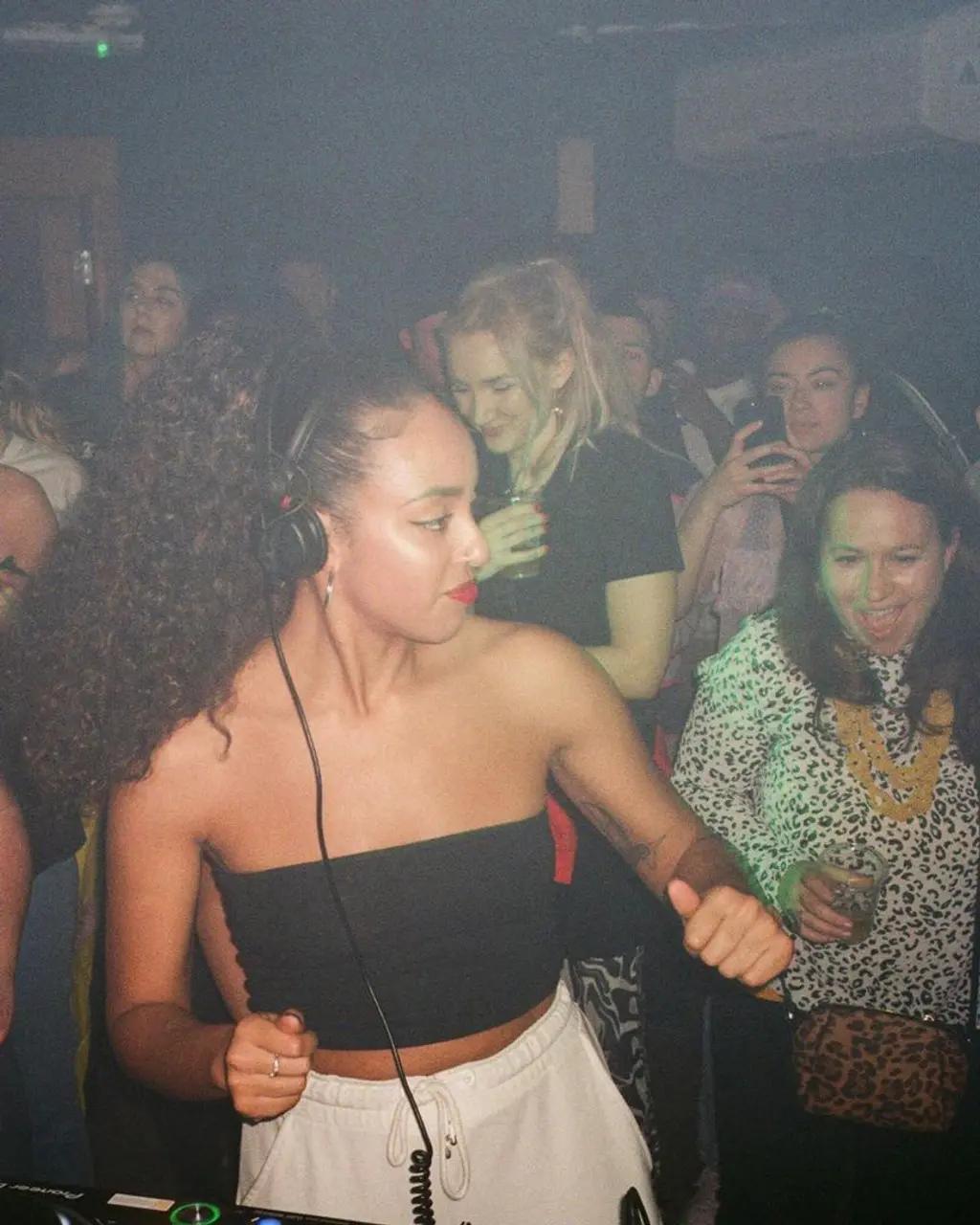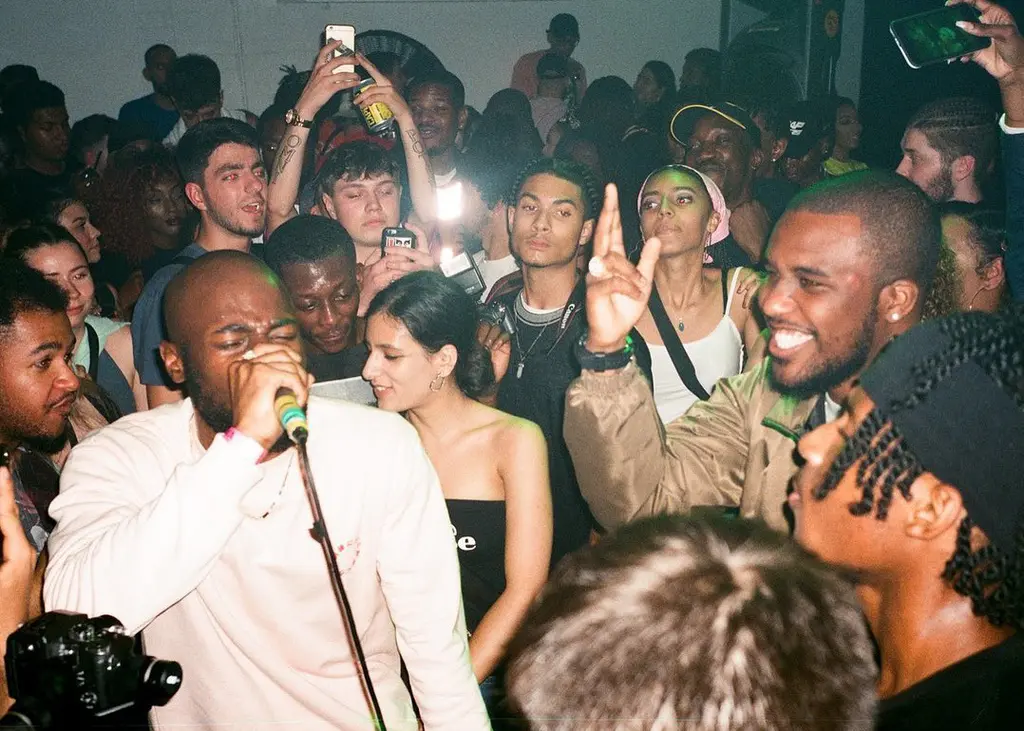Merch Service: making garms to help the dance community survive
Side Hustles: Disco-in-furlough – from underground raves to the fabric factory, Keep Hush are the late-night events business now creating premium merch for artists sidelined by the pandemic.
Life
Words: India van Spall
Artwork: Rachel Noble
It’s sobering to think it’s been over 12 months since Wuhan announced the world’s first lockdown. Since then, everything has changed, not least how – and where and if – we work. By last August, 9.6 million people were furloughed in the UK. By this summer, unemployment is likely to reach 2.6 million, up from 1.3 million at the end of 2019. Little wonder that 2020 was also a record year for new businesses, with 85,000 more start-ups launching year-on-year.
Now, as the one-year anniversary of the UK’s first lockdown looms, THE FACE investigates the working realities for those who’ve had to say goodbye to their former employment. From sneaker schools to sandwich services, bakers to candlestick-makers, our new fortnightly series celebrates the inventive side hustles of the Business Class of 2020/1. Who knows, maybe you’ll have a venture soon, too…
-
MERCH SERVICE MERCH SERVICE MERCH SERVICE MERCH SERVICE MERCH SERVICE MERCH SERVICE MERCH SERVICE MERCH SERVICE MERCH SERVICE MERCH SERVICE MERCH SERVICE MERCH SERVICE MERCH SERVICE MERCH SERVICE MERCH SERVICE MERCH SERVICE MERCH SERVICE MERCH SERVICE MERCH SERVICE MERCH SERVICE

STATS
FOUNDERS: Freddy Masters, Fred Conybeare
LAUNCHED: July 2020
£££: Currently raised over £37,000 for underground artists
Ludovica Guerrieri, aka Saint Ludo, is known for her high energy sets. Pumping out club bangers and jumped-up R&B, the 28-year-old Italian DJ built her way up in the underground music scene, regularly performing at late-night London events before progressing to main stages at Alexandra Palace and, later, touring with trip-hop artist Princess Nokia.
When, last March, the lights went out on clubbing, Guerreri, like many other musicians, was left without regular financial income. Stumped she turned to her close friends, Freddy Masters and Fred Conybeare for advice. The duo are the creative minds behind Keep Hush, an online community that (prior to lockdown) met up for epic dance raves at secret hotspots across the city.
By night, artists such as Plastician, Heléna Star and Sherelle would have free reign of the decks. By day, locals and music lovers would stop by their hired spaces to attend workshops, exhibitions or Q&A’s curated by DJ’s, radio producers and talent.
Since meeting Masters and Conybeare five years ago, Guerrieri has built a bond with the team hosting their Keep Hush events, assisting with socials and ad-hoc needs. But as the business hung in the balance, the Keep hush team decided to put their heads together to devise sustainable ways for them to all survive during the pandemic.
Enter Merch Service. With the tagline “Back the Underground”, their merchandise company’s aim is to support and remunerate the artists that have sustained them over the years by providing premium garms for musicians.
Their model is simple. After production costs to make tees, hoodies, scarves and more, 70 per cent of any sales go to the musicians. Merch Service retain the remaining 30 per cent to run the service. Maintaining a fair and even approach, every partner is paid an equal wage and, when a good cause arises – for example, Eastern Margin and Tohji’s collaboration to raise money for the Marsha P. Johnson Institute – their fee will be donated straight to charity. This fair approach filters through to their manufacturing, with all their materials ethically sourced globally and printed at an independent factory in Northampton.
Including Conybeare, Masters and Guerrieri, the team has six members in total, Rachel Olagunju (Head of Community), Sean Gomez (Events Manager) and Andy Booker who heads up strategy. As they enter a new industry, everyone has had to switch their jobs to roles spanning customer service and logistics, with Guerrieri now overseeing business development, an entirely new skill set for her. Even more impressive than the team’s career switches is the fact that since launch last July, Merch Service have raised over £37,000 for artist clients including Shanti Celeste, Emerald Lewis and Peach.
“It was key that we support underground artists and do something active,” says Guerreri. “And to be environmentally friendly, transparent and to make sure that, after years of doing events for artists, we helped out the people that helped us out. This is a test for us as well. But we proved you can pay people an equal wage and live off of it – and if you don’t do it, you’re a dickhead!”
Here, Guerrieri breaks down Keep Hush’s hustle into the fashion world.
How did Keep Hush come up with the idea for Merch Service?
Last year during the pandemic I was going through quite a hard time – I didn’t have any gigs. I was touring with Princess Nokia, as Tkay Maidza’s DJ. Then the tour got cancelled halfway through. I didn’t really have a job and I was struggling emotionally and financially like everyone else, and I had this chat with Keep Hush. Fred and Freddy, the two founders, started Merch Service and asked me to come on board. They’re my close friends so it’s nice to have the chance to work with your friends. Now I head up business development.
Explain your business ethos please.
As we couldn’t do events, we tried to devise a new way of supporting our artist community, which started a wider conversation about whether [by putting on parties] we’re actually bringing any value to artists as Keep Hush. We figured out that the benefit was going towards the audience who got to go to free gigs all the time and the artist was getting good content, but not much else out of it. Merch Service was a solution to that.
How much did it cost to set up the company?
There were some initial marketing costs like making the website and testing products. But the business model is “made to order”, so the product is made once we’ve batched all the orders at the end of the campaign. Luckily, that meant at the beginning we didn’t have to buy stock or inventory. On the other side, we needed to keep six people fed. The initial investment was us. The first artists had to believe in us and what we were doing.
How did the business progress after your launch last July?
We were paying wages to all six team members, and everyone from the founders to the most junior people are paid the exact same hourly amount. It’s all we can afford right now.
Keep Hush set out to be pro-artist but it turned out to be pro-audience. So we wanted to make sure the focus for Merch Service was on the artist. We do quarterly reviews because we’re trying to be very serious about this now. By the end of last year over £37,000 went directly into the artists’ pockets, in just five months.
How did you build momentum?
The Keep Hush audience is very wholesome. Ultimately, we’re a community. If you come to Keep Hush alone, you can rest assured that someone will come and talk to you. When we did events, all we’d do was host or DJ. The rest of the time I was just running around. I’d just go up and chat to people, make sure everyone in the audience felt safe or comfortable, or that they had a friend.
During the pandemic, people want to help artists, knowing that there was a whole entire sector that had absolutely no income. The reason it’s worked so far is because it’s not a revenue-making activity [for us personally] – but soon, hopefully, it will be. At the moment, we’re bootstrapping. I wish I could pay myself and everyone else a higher wage [and that] we could have an office, but we’re not there yet. We’re breaking even every month in terms of salaries, but that’s still a big achievement.
LUDO GUERRIERI
How challenging was it transitioning from DJing to creating merch?
We re-employed ourselves with skills that no one had. No one had any clue about fashion or merchandise or how the factory works. I’m a DJ and all of a sudden I was helping run this business. I was like: “Fuck, I don’t know what screenprinting is!” We’re only a few months old now so we’re still researching, listening to podcasts and looking at the brands we love. We wanted to ask ourselves all of these questions.
What specific things have you learned about the merchandise world?
Well, for example, we wanted to make sure we had heavier tees so they were a bit baggier and had that perfect drop. It also fits in with our audience and what they would wear. This is the beauty of having a team of people who are young and happy to build on their skillset. You need to shift and adapt on a daily basis to keep going. Thankfully, Merch Service isn’t boring! Every single day we’re learning something new and what we can do better.
Who have you collaborated with so far?
Artists like Emerald, Peach, Novelist, Club Quarantine, Louise Chen. A lot of Americans, which is nice because we get to branch out. The platform is for artists in the wider sense – someone who is not mainstream, that we share values with and appreciate. That could be an artist, a DJ, a venue or a charity – we’re doing a lot of cause-based work, too.
What has been the biggest hurdle?
There’s been a few fuck-ups, like with printing. The logistical side has been tricky. Sometimes artists will come to us and say: “We love you guys but this doesn’t look right.” Then we have to regroup. But there haven’t been any regrets so far. This is the beauty of working in such a small team: the agility and flexibility with which we change things is so reactive. Having a team where everyone works across the board makes us have our eyes on the prize.







